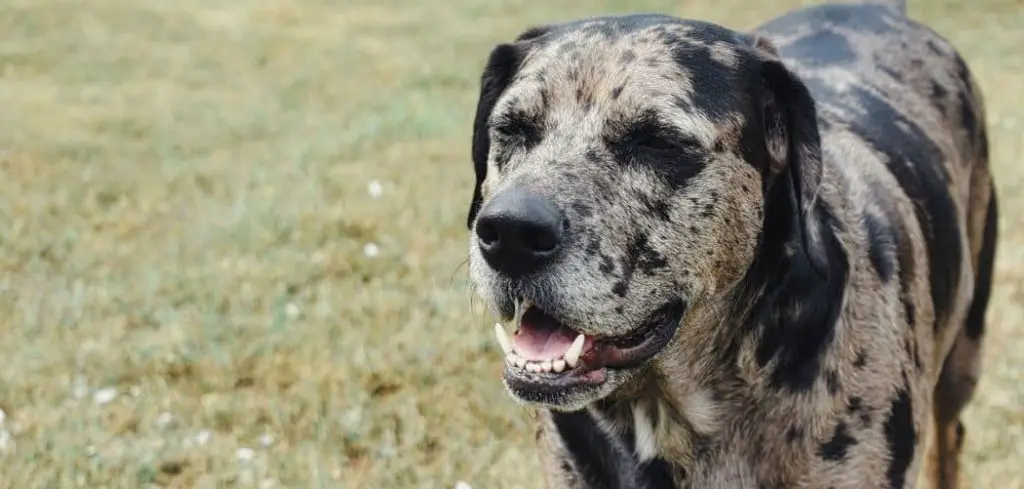If your dog is vomiting bile—a yellow or greenish fluid—and is refusing both food and water, it’s more than a minor tummy issue.
These symptoms together point to an underlying condition.
We outline what this combination of symptoms might mean and how to respond before your dog’s condition worsens.
Dog Vomiting Bile, Not Eating or Drinking: Why It Happens
Vomiting bile occurs when a dog’s stomach is empty but the body still attempts to vomit, often due to acid buildup, gastrointestinal irritation, or systemic illness. When this is followed by a refusal to eat or drink, it can signal problems like pancreatitis, intestinal blockage, bile reflux, or liver dysfunction. These symptoms suggest the digestive system is off-balance or inflamed.
When bile vomiting is paired with no interest in eating or drinking, the risk of dehydration increases rapidly, making prompt evaluation important.

Dog Vomiting Bile, Not Eating or Drinking: Common Causes
1. Bile Reflux or Empty Stomach Vomiting
Dogs that go too long without eating—especially early in the morning or late at night—may vomit bile due to an empty stomach and excess stomach acid.
This condition, known as bilious vomiting syndrome, can cause yellow vomit, temporary inappetence, and occasional nausea.
This is more common in dogs fed once a day.
Offering smaller, more frequent meals can help, but if your dog refuses food or vomits more than once, veterinary advice is needed.
2. Pancreatitis
Inflammation of the pancreas disrupts digestion and often results in bile vomiting, appetite loss, and avoidance of water.
Pancreatitis is painful and can become serious quickly without treatment.
Other signs may include hunched posture, lethargy, or diarrhea.
Veterinary care with fluids, pain relief, and a temporary fasting protocol is typically required for recovery.
Related: Dog vomiting and not eating (Causes and when to worry)
3. Intestinal Blockage
When a dog eats something indigestible—like a toy, bone, or sock—it can obstruct the gastrointestinal tract.
This can cause projectile bile vomiting, refusal to eat or drink, and an inability to pass stool.
This is a medical emergency. An x-ray or ultrasound is often needed to confirm the obstruction, which may require surgical removal.
4. Liver or Gallbladder Problems
The liver and gallbladder play essential roles in bile production and digestion.
When these organs are diseased or inflamed, dogs may vomit bile and stop eating or drinking due to nausea or systemic effects.
Liver-related illness can also cause yellowing of the gums or eyes (jaundice). Your vet may need to run bloodwork or imaging to assess liver enzyme levels and organ function.
Related: Dog Vomiting Yellow Bile and Not Eating: What to Do
5. Infections or Toxin Ingestion
Certain infections (like leptospirosis or bacterial gastroenteritis) and toxins (such as certain medications or spoiled food) can cause bile vomiting, inappetence, and water refusal.
These cases can deteriorate quickly into dehydration or shock.
If your dog recently scavenged or got into garbage, fast action is essential.
What to Do If Your Dog Is Vomiting Bile, Not Eating or Drinking
Bile vomiting combined with refusal of food and water means your dog may already be dehydrated.
Mild, one-time episodes can be monitored at home, but repeated vomiting or continued inappetence requires veterinary care. Here’s what to do:
Withhold food for 8–12 hours, but offer small sips of water or ice chips.
Do not give medications or human antacids, which may worsen the problem.
After fasting, try a bland meal (plain boiled chicken and rice) in small portions.
If your dog vomits again or refuses food and water entirely, visit your vet right away.
Keep your dog calm, warm, and isolated from other pets during recovery.
If your dog has vomited more than once, is weak, or hasn’t had water in over 12 hours, at-home care may no longer be safe.
When to Call or Visit Your Vet
Contact your vet urgently if your dog:
Vomits bile more than once in 24 hours
Refuses both food and water
Is showing signs of lethargy, dehydration, or weakness
Has vomited in combination with diarrhea, shaking, or collapse
Has a history of pancreatitis or liver disease
May have eaten something toxic or indigestible
Your vet may perform blood tests, x-rays, or ultrasound to check for blockages, liver dysfunction, or infection. Early treatment is key to preventing complications.
Related: Dog Vomiting and Not Eating but Drinking Water (What it means)
Key Takeaway
When your dog vomits bile and refuses to eat or drink, it’s a signal that their digestive system is under strain.
Whether it’s a simple empty stomach issue or a sign of something more serious, monitoring their behavior and acting quickly is vital.
Don’t wait too long—dehydration and underlying illness can progress faster than expected.
When in doubt, call your vet and get your dog the care they need to feel better and bounce back.
